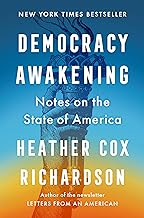
In the quest for Financial Independence, milestones vary from mastering debt to embracing minimalism.
We’ve gathered insights from nine professionals, including Finance Experts and Founders, to share their personal triumphs. Discover how these individuals have navigated their paths from mastering debt through frugality to paying off mortgages independently.
- Mastering Debt through Frugality
- Achieving Total Debt Freedom
- Securing a Higher-Paying Job
- Early Retirement through Real Estate
- Eliminating Debt with Side Hustles
- Embracing a Debt-Free Minimalist Life
- Regulating Finances with Nervous System
- Strategically Paying off Student Loans
- Paying Off Mortgage Independently
Mastering Debt through Frugality
Each milestone marked an important stage towards a more confident future on this road to Financial Independence. One turning point occurred when I became a master of managing Debt and adopted frugality as my way of life.
Although, in my pursuit of financial freedom, it dawned on me that Debt was both a burden and a tool; this happened at the time when I decided to confront my debts openly. Eventually, I divided them by interest rates and then talked with lenders about much better repayment terms. With discipline and focus, little by little, I got rid of a mountain of debts while coming closer to financial liberty after each payment.
Another significant landmark was when I began practicing frugality. For instance, being mindful of small savings that accumulate over time into significant wealth-creation opportunities has been one key lesson that I learned from this approach. In other words, I dissected every expense into what need was involved for its necessity or want and became good at finding creative ways to save without losing sight of the quality of life.
Whether it is meal planning or relying on loyalty programs or DIY solutions; being frugal does not mean living without but instead making conscious decisions towards personal financial objectives.
Whenever I look back on the path that led me toward my financial independence, I don’t see these checkpoints as just what they are; instead, I think of them as turning points in how I think and act. Learning how to manage debt properly and adopting a saving lifestyle have given me complete autonomy over my financial future, thus laying down a foundation for abundance and stability. –– Arifful Islam, Finance Expert, Sterlinx Global LTD
Achieving Total Debt Freedom
One of the biggest milestones on my journey to Financial Independence was finally becoming 100% debt-free. This achievement felt especially meaningful because it required a serious commitment to smart money management and embracing a frugal lifestyle.
Early in my career, I was weighed down by a ton of student loans and racked up credit-card balances. I realized all that debt was just holding me back from reaching my bigger financial goals and living the life I really wanted. So, I made a decision to make paying it all off as fast as possible my top priority.
I started by creating a super-detailed budget that accounted for every dollar of income and expenses. Then I looked for any areas where I could cut back on non-essential splurging: like eating out, entertainment, shopping sprees, etc. Any money I could free up got funneled directly towards making bigger debt payments, focusing on the highest-interest accounts first.
At the same time, I fully embraced a more frugal, minimalist lifestyle overall. I learned to appreciate simple, free pleasures and find joy in experiences over buying a bunch of material stuff. I also hustled to increase my income through side gigs like freelancing or selling unwanted items.
Through diligent budgeting, living frugally, and a strategic debt repayment plan, I managed to become 100% debt-free within just a few years. Not only did it drastically improve my overall financial situation, but it gave me this incredible sense of freedom and control over my life. It laid the foundation for even bigger money wins down the road while teaching me the value of living below my means to prioritize long-term goals. –– Loretta Kilday, DebtCC Spokesperson, Debt Consolidation Care
Securing a Higher-Paying Job
The most critical milestone I reached was getting a job that paid more than just “enough.” I’ve tried freelancing, selling online, starting a website, doing social media, and I even tried digital marketing for a startup. But it wasn’t until I got a plain old job that just paid more than I needed that I found everything I needed: peace of mind, freedom from debt, the start of a retirement fund, and more.
For anyone who’s struggling even $50 makes the difference between starving or surviving: I suggest just building your skills and portfolio and moving up to better-paying jobs. Get the certainty and security that comes from a regular salary, one that allows you to pay all your bills and gives you breathing space.
Once that’s done, you have the room to plan for the future, to pay off debt, to organize your finances so that if you want to budget, it’s actually possible. — Debashri Dutta, Founder, Dmdutta.com
Early Retirement through Real Estate
Being able to retire in my early Thirties was a significant milestone toward Financial Independence. I started investing in real estate in my twenties, and I had to work two jobs and live frugally to afford a down payment.
But today? I don’t have to worry about working a job I’m not particularly passionate about. Instead, I can spend my time doing what matters more to me, like coaching others who want to escape the rat race and build financial security for themselves.
Bottom line: If you have a goal in mind, short-term sacrifices will be worth it in the long run. — Ryan Chaw, Founder and Real Estate Investor, Newbie Real Estate Investing
Eliminating Debt with Side Hustles
I gained Financial Independence through hard work and side hustles. The biggest milestone I achieved was paying off US$60,000 in student loans. That debt was debilitating, and I was able to pay it all off by devoting all the money I made from side hustles to debt reduction. After I paid off my student loans, I used the same methods to pay off the house.
The next milestone that was incredibly important to me was having US$250,000 in savings. That milestone was important because it felt like the investment income began to snowball. It also felt like my hard work was paying off, and it made it easier to make the effort to save money after that point because I felt it working. — Jonathan Geserick, Managing Attorney, Texas Probate Pros
Embracing a Debt-Free Minimalist Life
I had a business go very south about 10-15 years ago. I held on way too long because it was “my baby.” Because of this, I racked up a lot of debt that I really knew I shouldn’t have, trying to save the business.
I moved that debt into a very low-interest situation long ago, which allowed me to pay a very small amount towards the principal and interest every month. That was a great solution; however, I recently decided to just pay the whole thing off. Continue Reading…






